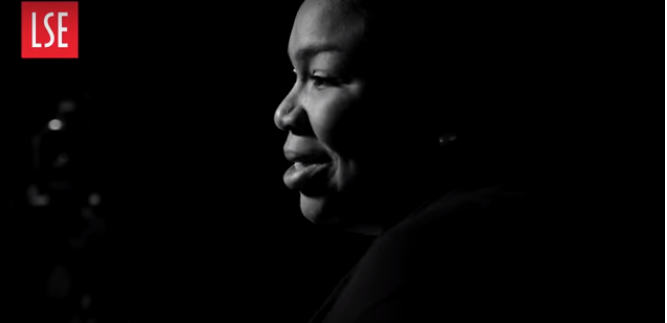 Former UK Ambassador to Guatemala
Former UK Ambassador to Guatemala
Family and youth: “My mum was one influence. She very much made me believe that I could do anything, and being at an all-girls school, you’re always thinking there aren’t any barriers. Everything was about, ‘Why wouldn’t you? It’s whatever you want to do.’ I guess growing up in an age of Margaret Thatcher, as well, I just thought, ‘Yeah, right, what do I wanna do? How do I get there?’ That was just the context in which I grew up – and the more I realise just how unbelievably lucky that is.”
Reflections of working in a male dominated field: “I just find myself actually quite comfortable in a male world because it just gave you an excuse to be different and use that. Fifteen years ago when I started, I would go to meetings and very often be the only girl. I minded it more when I was less confident because I felt there was this whole thing of ‘you’re different, if you speak up, people will listen’, and I was more worried about saying something stupid. Whereas the more confident I grew, the more I embraced the idea, that actually yes I was different and therefore going to be listened to.”
Changing leadership styles: The whole idea of what’s acceptable at senior levels and what’s not has really shifted. So when I started, it was very much the rule of a certain type of character; very strong, very smart, kind of intimidating. A very old school concept of what you might think of an ambassador – someone that would rule the roost. Then the whole idea of leadership changed in terms of you being as good as your team. It became very much about, “How good are you at managing performance and motivating your team?” Those types of characteristics became more important.
Coming across chauvinistic attitudes: “First you’re just like, ‘No, no, no, I’m being silly,’ but again, in hindsight, you realise, ‘No, you know, it was pretty unacceptable’. You’ve gotta use it to just grit your teeth and prove yourself, and I think we’re not far off. There will be generations where you don’t have to prove yourself. We’re still in that stage where the opportunities are there, whereas, probably a couple of generations ago, the opportunities weren’t there. Now the opportunities are there, you probably do have to work harder to prove yourself and then, hopefully, when these girls come up, they’ll just think it’s normal and I’ll be very happy when that’s the day.”
The women that follow: In terms of whether women should go for ambassadorial positions: abso-bloody-lutely. Why on earth not? Certainly any challenges I’ve may have faced in terms of chauvinistic attitudes haven’t in any way been a major factor for me to dissuade women. As I say, sometimes you have to prove yourself, but you prove yourself, full stop.
Support at home: “I’ve just got married and it is amazing the difference that having support at home makes. I think even the toughest people are probably so much stronger when they’ve got someone behind them, you know? It’s not easy on your own, it really isn’t.”





